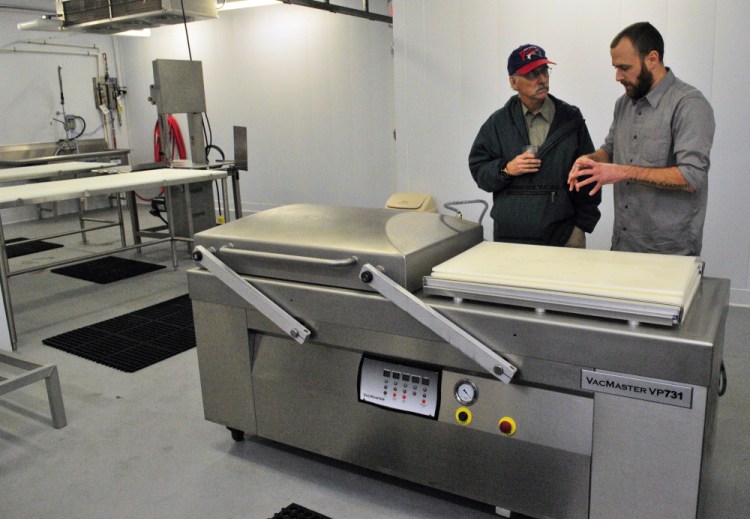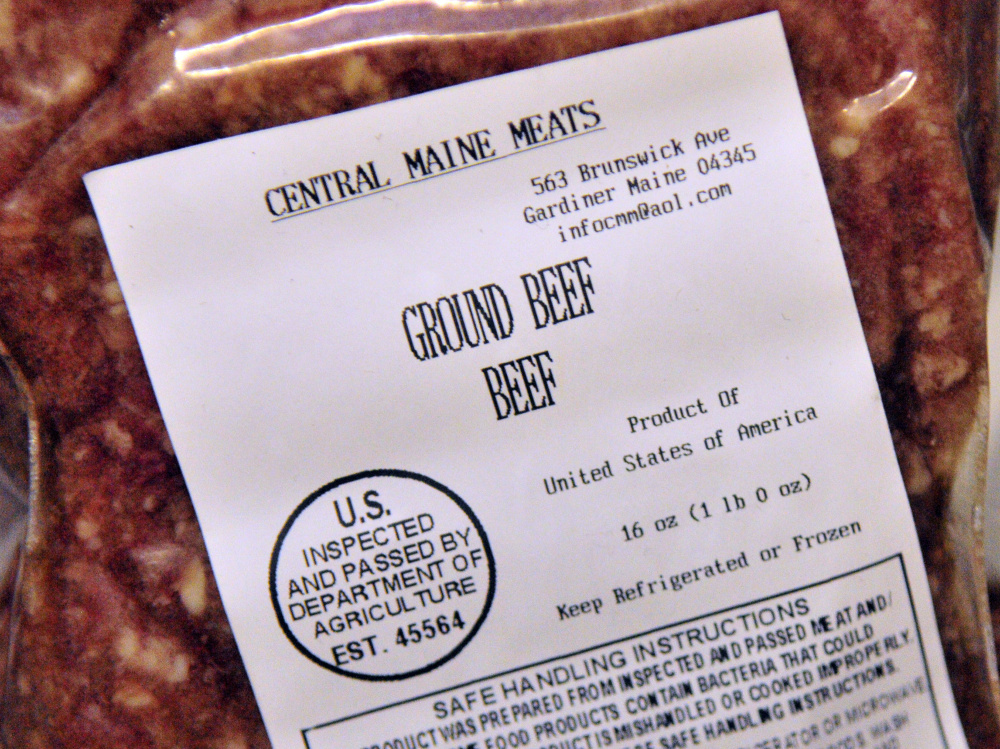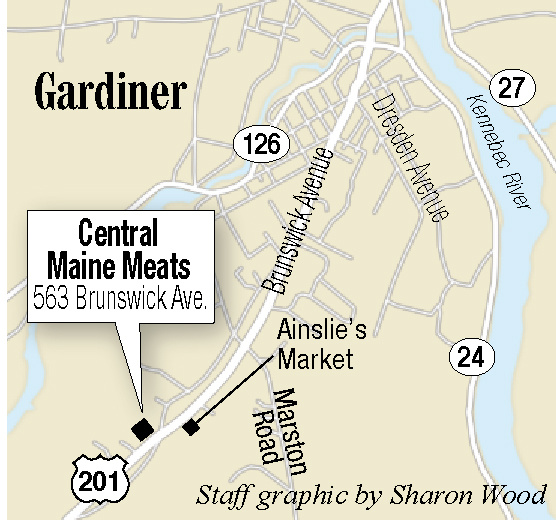GARDINER — One of the great bottlenecks to the production of food in Maine is the infrastructure that’s needed to get it from field to market.
For producers of beef, lamb and pork, that bottleneck will be eased when Central Maine Meats opens its slaughterhouse for red meat in the Libby Hill Business Park for business.
When that happens, Steve McGee will have another option to take his cattle and pigs to market. A man who wears many hats, McGee raises beef and pork on McGee Farms in West Gardiner. When it’s time to take his animals to be slaughtered and processed, they have to be trucked 600 miles to a facility in Pennsylvania. The demand for service is so high, McGee has to make an appointment, and sometimes the wait time is several months.
Having a facility in Gardiner will be more convenient, less expensive and better for the animals, McGee said. “It’s going to be a huge help in the area,” he said.
McGee was one of several dozen people to tour Central Maine Meat’s new facilities both in the Libby Hill Business Park and on Brunswick Avenue.
Joel Davis, managing director of Central Maine Meats, sees his business as part of a much larger picture.
“In the state of Maine, we import 96 percent of the food we eat,” he said. “If we can change that by 1 percent, that’s $150 million in revenue for Maine people.”
Davis said he believes Central Maine Meats and the Gardiner community can change that and the role food plays in the local economy and in the health and well-being of its residents.
Central Maine Meats is employing state-of-the-art design and humane handling methods developed by Temple Grandin, a Colorado State University professor who is a noted expert on animal welfare.
The company is adding about 50 jobs in the local economy and paying those workers a living wage. “The starting pay for the head butcher is more than $20 an hour,” Davis said.
Getting to this point has required an outlay of capital that Davis terms “ginormous” and has required financing and assistance from lending institutions, rural business development and the city of Gardiner through a Community Development Block Grant for economic development.
The expansion of the business means Gardiner is that much closer to becoming known as a food-driven economy.
“The likelihood is getting better and better,” Gardiner Mayor Thom Harnett said. People are becoming more and more interested in where their food is coming from, he said. Supplying that food are places like the Gardiner Co-op with its locally grown produce, Emery’s Meats with locally sourced meat, Lost Orchard Cider and even the Craft Brew Cellar, which celebrated its grand opening last weekend, he said.
“If we can tap into that interest, we’ll really have a chance,” he said.
All that’s needed now for Central Maine Meats is an inspection by the U.S. Department of Agriculture, and when that’s done in the next week, it will be good to go, Eben Harrington said.
Harrington was leading tours through the company’s Brunswick Avenue facility that will house the company’s meat processing and packaging. As the HACCP control manager for the company, Harrington oversees the safety of production. HACCP stands for hazard analysis critical control point, and it’s a safety management system that addresses all the hazards — biological, chemical and physical — of food production through analysis and control from raw material to finished product.
The U.S.D.A. designation is important because it means that whatever is produced at Central Maine Meats can be sold and transported out of state. While Central Maine Meats will not be the only red meat processing facility with that designation, the poultry processing plant which shares the facility, Commonwealth Poultry, is the only one in the state to bear that designation.
Jessica Lowell — 621-5632
Twitter: @JLowellKJ
Send questions/comments to the editors.






Comments are no longer available on this story